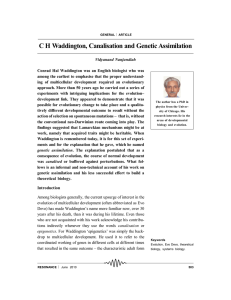MIT Biology Department 7.012: Introductory Biology - Fall 2004
advertisement
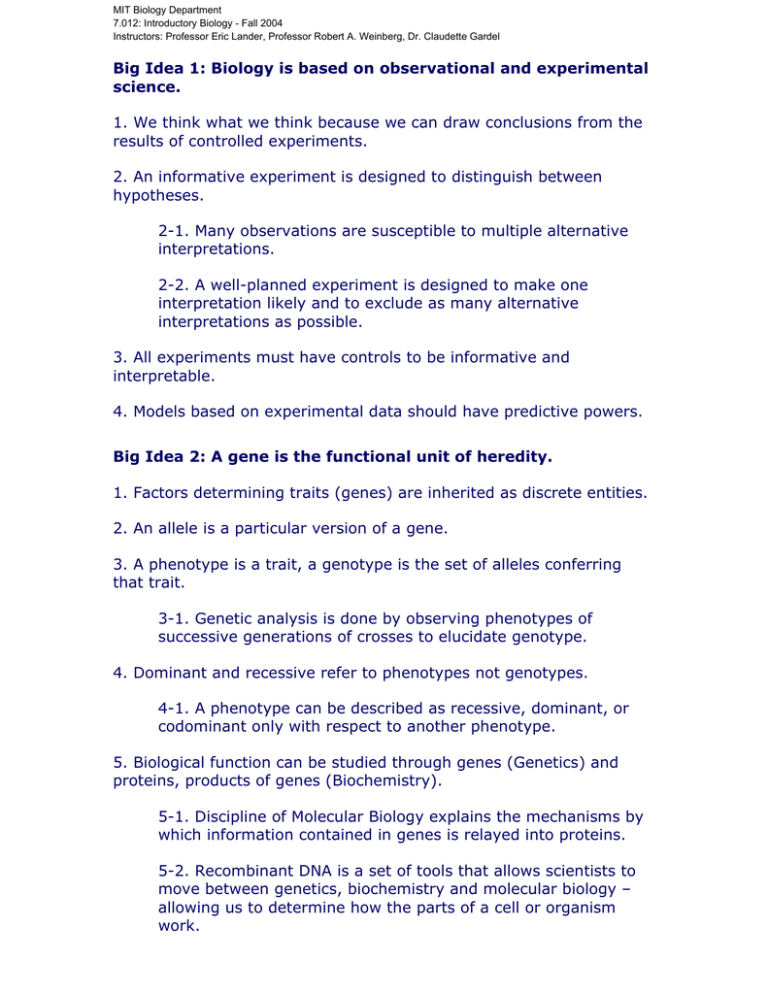
MIT Biology Department 7.012: Introductory Biology - Fall 2004 Instructors: Professor Eric Lander, Professor Robert A. Weinberg, Dr. Claudette Gardel Big Idea 1: Biology is based on observational and experimental science. 1. We think what we think because we can draw conclusions from the results of controlled experiments. 2. An informative experiment is designed to distinguish between hypotheses. 2-1. Many observations are susceptible to multiple alternative interpretations. 2-2. A well-planned experiment is designed to make one interpretation likely and to exclude as many alternative interpretations as possible. 3. All experiments must have controls to be informative and interpretable. 4. Models based on experimental data should have predictive powers. Big Idea 2: A gene is the functional unit of heredity. 1. Factors determining traits (genes) are inherited as discrete entities. 2. An allele is a particular version of a gene. 3. A phenotype is a trait, a genotype is the set of alleles conferring that trait. 3-1. Genetic analysis is done by observing phenotypes of successive generations of crosses to elucidate genotype. 4. Dominant and recessive refer to phenotypes not genotypes. 4-1. A phenotype can be described as recessive, dominant, or codominant only with respect to another phenotype. 5. Biological function can be studied through genes (Genetics) and proteins, products of genes (Biochemistry). 5-1. Discipline of Molecular Biology explains the mechanisms by which information contained in genes is relayed into proteins. 5-2. Recombinant DNA is a set of tools that allows scientists to move between genetics, biochemistry and molecular biology – allowing us to determine how the parts of a cell or organism work.
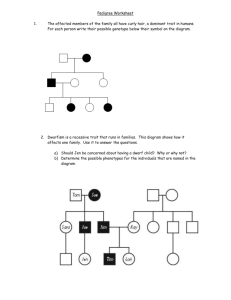
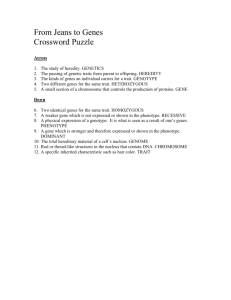
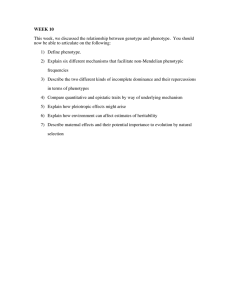

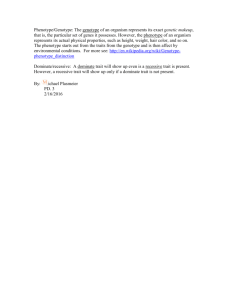




![Biology Chapter 3 Study Guide Heredity [12/10/2015]](http://s3.studylib.net/store/data/006638861_1-0d9e410b8030ad1b7ef4ddd4e479e8f1-300x300.png)
